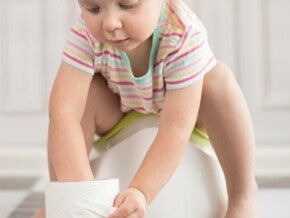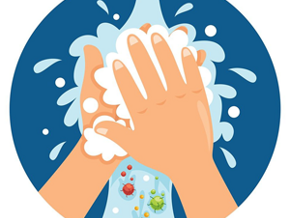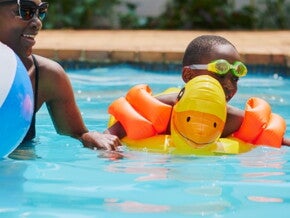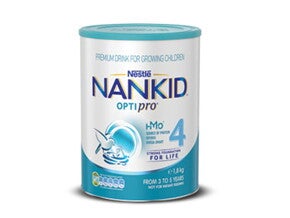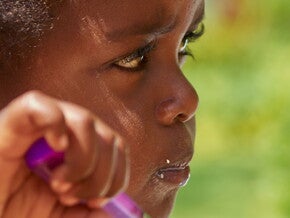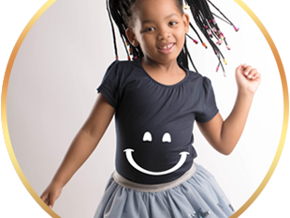
His ability to grasp now means your child will be easily picking up his food with two to three fingers instead of his entire hand.
He’s exploring how to eat with utensils as he begins to use a spoon and fork. He’s still learning how to drink from an open cup and sometimes uses a straw. All of these advances make your little guy think he can do it all himself. All babies progress differently, but if you are concerned your child isn’t keeping up with others his age talk to your paediatrician.
Signs of readiness and feeding recommendations for infants above 1 year of age
| Signs of readiness | Feeding recommendations |
|---|---|
| Takes foods easily with fingers | |
| Begins to self-feed with spoon | More texture adapted to chewing and swallowing for eveloping feeding skills. |
| Progressively rotates spoon near mouth |
Foods for toddlers with more variety to discover new taste. Variety of foods and recipes. |
| Limited added sugar and salt | |
| Begins munching with rotary chew |
Hand-held sticks and slices of soft food for practicing biting. Judge bite size, but be sure food can be easily mashed on jaw line. |
| Picks up and puts down cup | Use age-adapted cup for liquids other than breast milk. |
Expect this at 12-18 months
- He’s trying out utensils in different ways, using spoons for dipping and scooping up food with his fork.
- First-year molars have come in and he’s getting more practice chewing.
- Tilts a sippy cup backward with both hands because his wrists can rotate.
- Excited to sit at the table. Social time with the family is as important as the food.
Expect this at 19-24 months
- Less predictable eating habits mean he may eat lots one day and hardly be interested the next.
- He may hesitate as new foods are introduced, so it may take several tries before he opens up. Never insist that he finish what’s in his bowl, but rather allow him to rely on his hunger and fullness cues.
- He may exaggerate the chewing action, opening his mouth wider than necessary and causing some food and saliva to dribble out. But that’s to be expected and is perfectly okay.
- He’ll prefer the familiar routine of mealtime—seeing the same bib, bowl and utensils is comforting to your Toddler.
- His larger height and weight will usually mean that a high chair is no longer needed as he takes his own seat (or booster seat) at the table.

